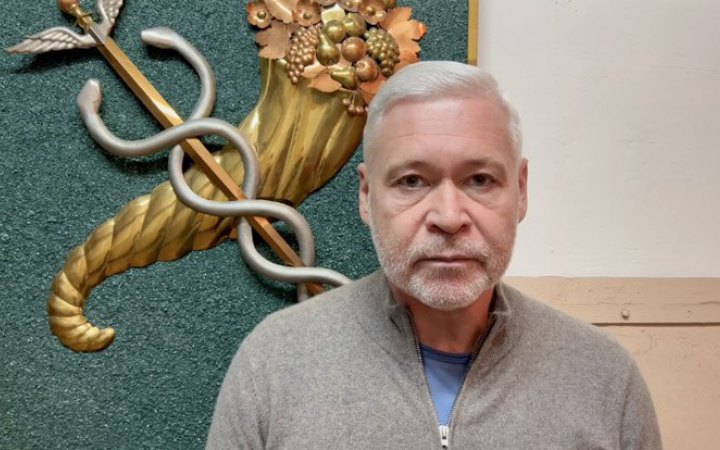"We will, in fact, need to create a new city"
The war has been going on for a month. During this time, Kharkiv became one of the symbols of the Ukrainian resistance. The pre-war city was relatively pro-Russian. Have you tried to answer for yourself a simple question: why Kharkiv is so heavily attacked, why such ostentatious cruelty? The reasons, in addition to geographical location, of course.
Every person who lives in Kharkiv, who sees what Russian troops are doing to Kharkiv today, asks himself a similar question: why Kharkiv? And, in fact, there is no answer. The answer is equivalent to the answer to the question, why there is a war? Why did the Russian army come to Ukraine? Why did the President of Russia declare war to Ukraine?
Kharkiv is a Russian-speaking city, 90% of the population here speaks Russian. A city where every fourth person has relatives in the Belgorod, Tula, Kursk regions, in Moscow, acquaintances, friends, who, unfortunately, happened to live in the Russian Federation. And the attitude of Kharkiv residents to the Russian Federation has always been very loyal. We do not hide that. Until 2014, there were no special borders (with Russia – S.K.) - the Russians came to us to Gorky Park, came to our stores, bought things, food, because it was cheaper. Spent the weekend. Everything was fine, we were always friends, there were never any questions about Russia-Ukraine relations.
In the year 2014, a certain watershed occurred. Nevertheless, I can say that the attitude towards the Russian Federation still remained loyal here. But since 2014, Donetsk, Luhansk, Donetsk and Luhansk regions have shown the city of Kharkiv all the horror that has happened there. After that, the attitude of Kharkiv residents to the "DPR" [Donetsk People’s Republic], "LPR" [Luhansk People’s Republic] and the fear in the eyes of the people that this may happen again, led to the fact that the mentality of the city of Kharkiv has changed. Normal attitude to the Russian Federation remained, but the people of Kharkiv had no desire to be "under Russia", or to become an autonomous formation, so to speak.
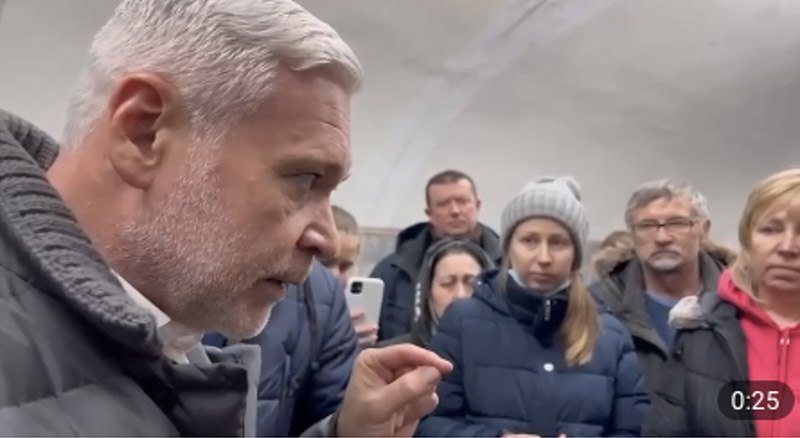
Svyatoslav Vakarchuk recently came to Kharkiv, we went down to the subway with him, and while he was singing a song, people came up to me and said, "Russia has attacked a city that was loyal, and they are destroying it." God willing, everything will end, we will win, then we will build a new Kharkiv and a new Ukraine, but more than one generation will pass until at least some loyalty to Russia reappears. And I don't know if it's possible at all.
I'm not sure it's possible to forgive.
Our generation is unlikely to be able to do that. And our children. They see all these horror, losses, bombings. I don't know how much of this can be forgiven...
You know those who are in Western Ukraine now will confirm: the difference between internally displaced Kyivites, say, and Kharkiv residents is very noticeable, very much.
I will say that literally during the last week the number of cars in Kharkiv increased. The men took the families away and they get back. They join local defence forces. You have to be born, raised and be a Kharkiv resident. Kharkiv residents cannot sit somewhere in the distance and think as they have a completely different mentality.
Probably, each region has its own mentality, but I am a hereditary Kharkiv resident, I was born, lived and never left the city of Kharkiv. So I understand those who took the family and returned. There are many today.
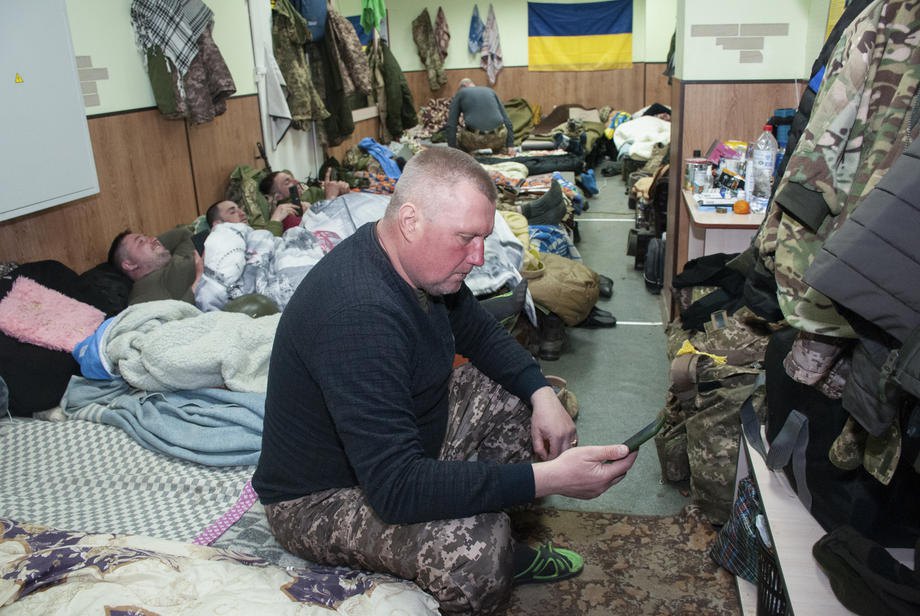
Photo: EPA / UPG
Hitting Freedom Square occurred on the fifth day of the war. It was a demonstrative bombing - the largest square in Europe, the most famous point of Kharkiv. Then the regional administration, other administrative buildings were attacked. From the first days it became clear that Kharkiv will not be occupied quickly, it is not going to surrender, as well as to greet the aggressor with flowers. As a result, the bombing continued.
It is difficult for me to explain actions that do not lend themselves to logic. I don't want to explain it. I can say that the destruction is enormous. It all started with the regional state administration, where people died and were injured. Then there was the city hall, other administrative buildings. More than a thousand buildings in the city have been destroyed as of today. Different buildings. Think about it, thousands of houses. Many of them cannot be restored. In fact, we will need to create a new city. And why are we being destroyed? I will repeat once again: why there is a war? I do not know.
“There are no safe places in the city. They bomb all the time.”
How has the nature of the fighting for and around Kharkiv changed during this month?
You know, I can't say that anything has changed. I would not draw such conclusions yet. Why? We are bombed. While in other regions there are quiet periods, there was neither day nor night in Kharkiv when we were not bombed. Maybe there was slightly less bombing from planes, but this is very deceptive. Today there is constant shelling from MLRS “Grad”, mortars, and rockets.
I was once asked which area of the city of Kharkiv is the safest. And there are no such areas. In fact, no one understands where a projectile can land, where a mine or a bomb can hit when an airplane appears. There are no safe places. They bomb all the time. Sometimes a little more during the day, less at night or vice versa. But the approximate amount of shelling is the same.
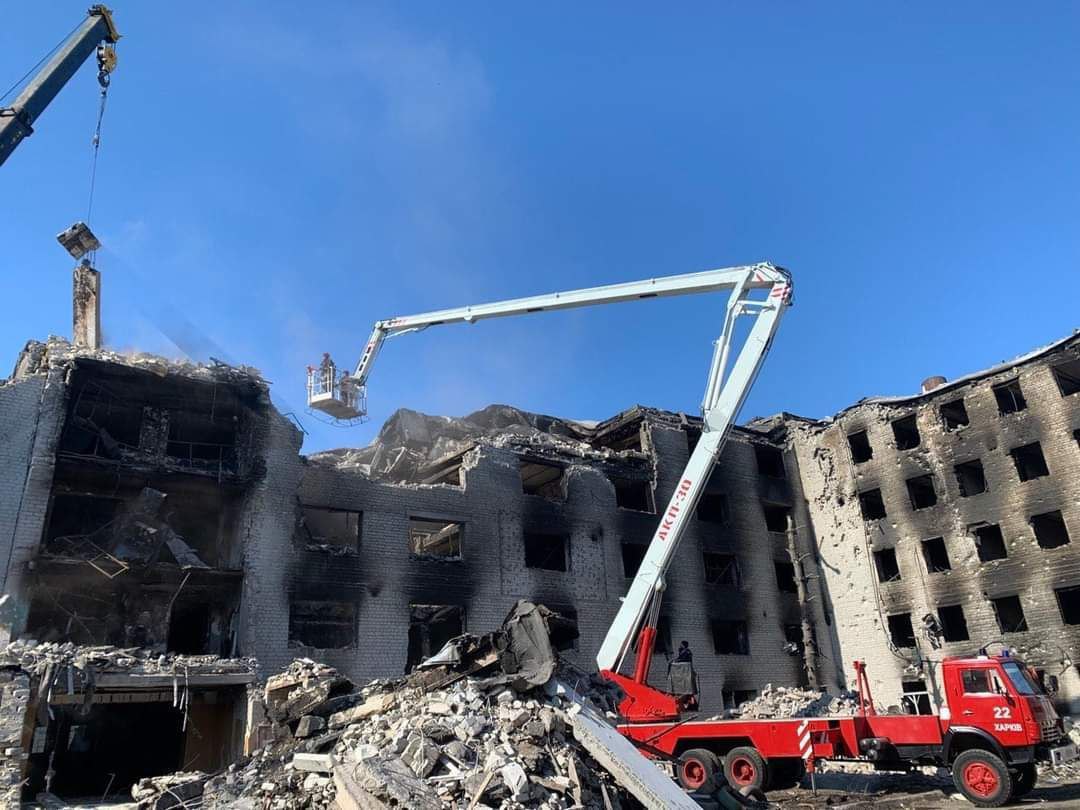
Photo: DSNS
Is that correct that there is no understandable tactics of the enemy, which could be analysed and adjusted to, roughly speaking?
Alas, no. There is no interval. Everything is chaotic.
As far as I understand the geography of Kharkiv, residential districts suffer more - Saltovka, HTZ, central district, Pavlovo field…
All in a row. All areas of the city of Kharkiv, the airport area, the area of many subway stations were shelled. There are no neighbourhoods that would not be affected.
I want to ask separately about Gorky Park and the zoo. Of course, now the priority is people, but animals still...
As for Gorky Park, there is partial destruction. I wish it was not bombed anymore, but no one knows what it will be like. There were some fragments hitting the zoo. The ecopark was bombed…
Feldman.
Yes, near the by-pass road. The owner of the ecopark asked us to take the monkeys, such wonderful monkeys live with us today (in the city zoo – S.K.). Some more animals were taken away. We take care of them even in such a difficult time.
If you remember, Sonya, when we were at the zoo (during the previous interview – S.K.), I showed you a monument to three monkeys who escaped from the zoo during World War II and hid at the university, and despite the famine people fed them. Then they returned to the zoo, and we erected a monument to them. The monument was damaged. But people continue to take care of animals. After all, the zoo is one of the favourite places, attractions of the city of Kharkiv, and I also pay attention to it so that the animals were in normal condition, fed, cared for by veterinarians.

Do you have enemy RSG [reconnaissance and sabotage groups]? This is a big problem for many cities.
Of course. Because of them, many objects were destroyed. They marked the objects [to be shelled]. The police and law enforcement agencies are working hard to eliminate the RSGs - a lot of them were thrown into the city.
Chernihiv Mayor Vladislav Atroshenko said in an interview that one of the spies tried to go to his meeting - in our uniform, with our documents. Have you had any egregious cases?
This should be done by the relevant authorities, and their assessment of the situation is completely different. I can say that today I am pleased with the work of our law enforcement agencies in terms of combating RSGs, because in the beginning there were a huge number of them. I'm not saying they're not trying to get into the city now. But our fellows are working precisely and tough on this.
What is the situation with industrial enterprises located in Kharkiv? It's not just HTZ. Which ones are canned [put in preserved condition] and which ones aren't? For example, Azovstal in Mariupol was preserved in a timely manner, which helped to avoid an environmental catastrophe during the subsequent shelling.
We do not have such enterprises that could provoke an environmental catastrophe. What could be really done, it was done. The enterprises do not operate when being bombed, as you understand.
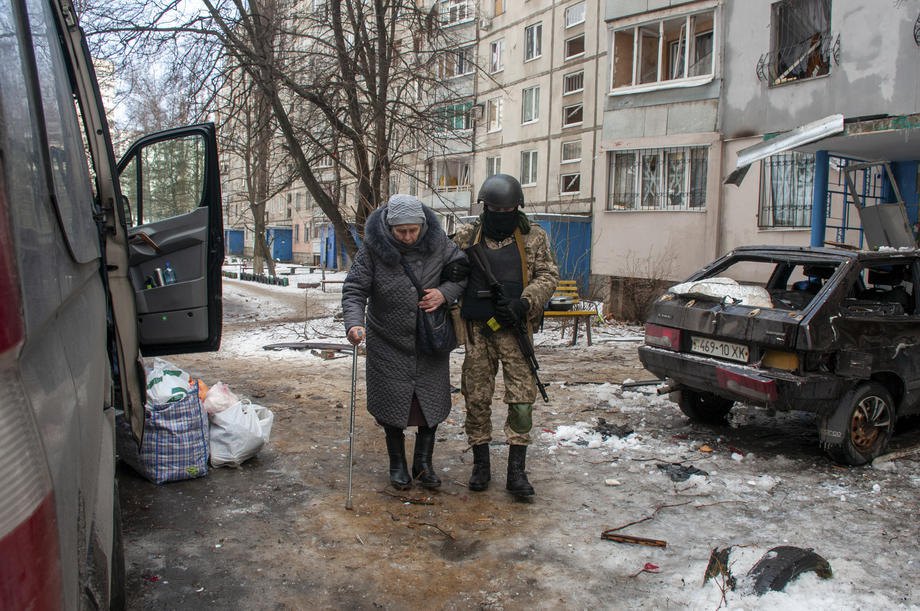
Photo: EPAUPG
"I appealed to all the CEOs and owners of supermarkets, I had a tough conversation with some of them about prices."
You said that more than 1,000 residential buildings were damaged. Mostly multi-stored buildings. In Mariupol, people just give each other the keys to the apartments that are more or less intact and so migrate around the city - from apartment to apartment. What is the situation with this in Kharkiv? You said that you evacuate people to the subway, but one cannot stay in the subway for a long time. What about the resettlement of those who have not left but have already lost their homes?
I evacuated people so that they would not be in the zones being attacked. I asked to leave. Some people agree, some do not, some agree after the shelling. Sometimes I beg several times - people are different, everyone has their own mentality, everyone endures stress differently. Someone says, "No, I'm not leaving, I'm going down to the basement, to the bomb shelter."
The difficulty is with the "zero" zone [a zone near the front line], as we call it, it is difficult to provide services there, it is difficult to deliver food, medicine, hot food there. But we have organized a special system for the "zero" zone. I will not talk in more detail, so as not to expose people to shelling. But it is better for security reasons when we ask to go - to go. We provide schools, kindergartens, other administrative facilities so that people can come and we can serve them properly.
Subway… You know, insanely grateful to the whole subway, to the people who work at the stations. They took care of the people. I sometimes go down to the subway station, talk to people. There, as well as in schools, it is easier to deliver help - hot food, there is a stock of products, all necessary medicines. Warm things, blankets. It is not necessary for a person to spend the night there. In fact, today the subway station is a social centre, where there is almost everything, including animation for children, internet, TV, electric kettles, etc. There is absolutely normal atmosphere to the extent possible.
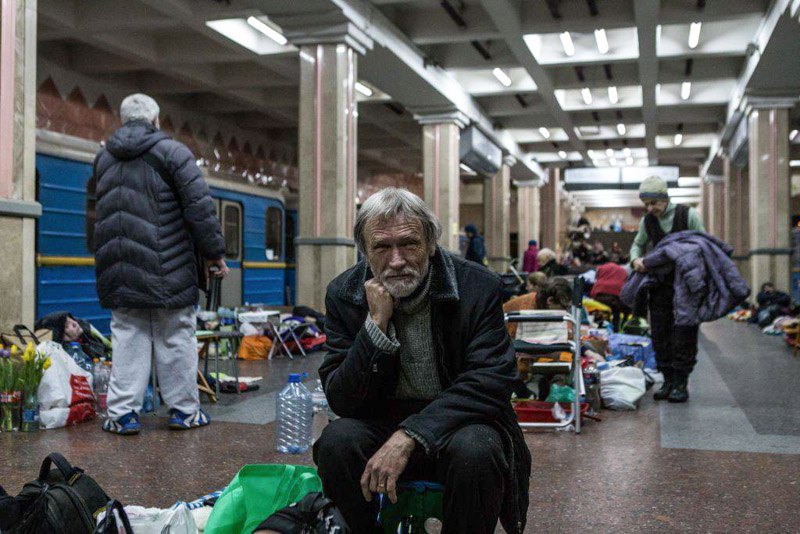
Photo: Kharkiv Regional State Administration
Link to another article: Life underground: how the Kharkiv subway became a temporary shelter. Video of the "Ukrainian Witness"
At schools and kindergartens, we prepare food in canteens and bring food there. For people who do not want to leave their homes, we have organized free distribution of food and medicine in all areas. Daily, including Saturday and Sunday.
I am very grateful to my team, all the volunteers, people who work 24 hours a day, almost do not sleep. For bus drivers, we have super buses that we bought before the war. Today we have involved everyone in the transportation and distribution of products. Drivers drive under fire, they are great men, strong in spirit. They are being shot at but they keep on driving.
And utilities… I'll tell you an example. The day before yesterday, fragments flew into the garbage truck. They just started loading garbage, and they were hit. I came to KVBO - our municipal enterprise for the removal of household waste, talked to the driver, and he is not afraid at all. Is it necessary to clean the city? It is necessary! We are pulling new heating pipelines. The heating pipelines get broken, disconnecting districts from heat, and we pull new heating pipelines on the surface, without digging anything, heat-insulating pipes are laid just like that. They shoot - we put on bulletproof vests and go forward.
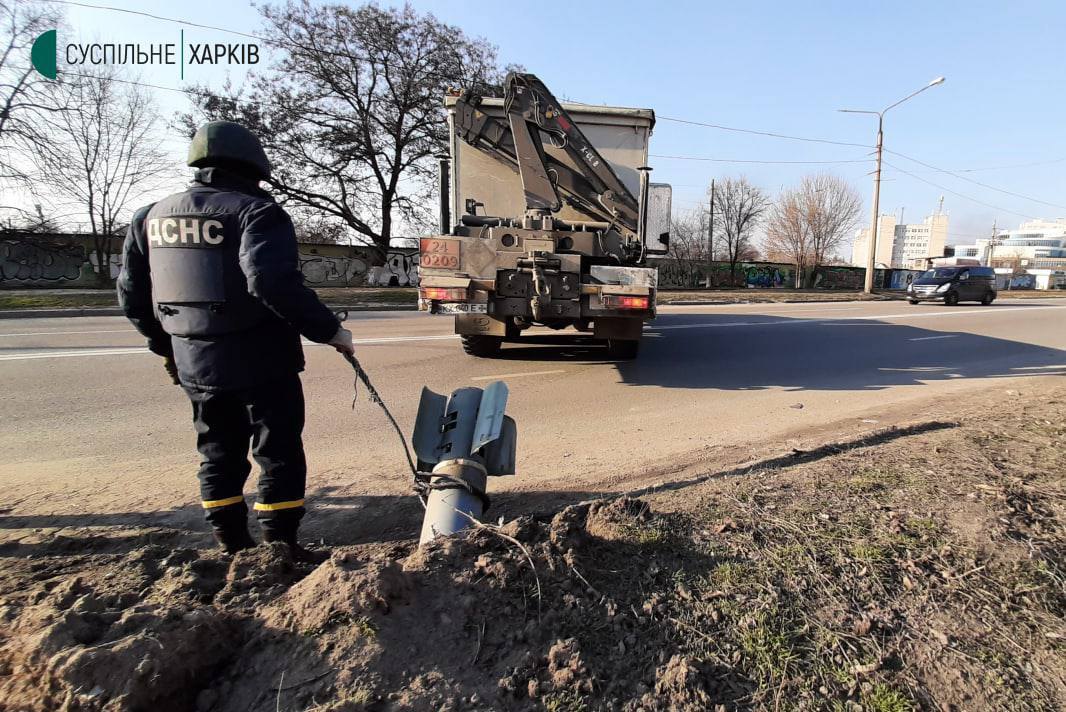
Utility service workers, indeed, are now performing a feat. Even before the war, Kharkiv had a reputation as one of the cleanest cities in Ukraine.
Nothing has changed for us. Yard workers, janitors, as we used to say, work. Recently I was told the story of how about 8 am, and this is the most dangerous time, the time of the shelling, there were claps. Everybody would get to the window, and this was a container loaded with garbage.
Or there was a story when a resident of the city of Kharkiv scared his neighbours. There was silence, morning, and he went to emboss the carpet (laughs – S.K.).
In Kharkiv, however, economic activity continues: there is delivery, pharmacists are working, shops and small coffee shops are resuming work. How do you manage to maintain this? In other cities, unfortunately, this is a big problem.
Yesterday I drove to Strelka Square, such a beautiful square. I talked to the guys, it was such a good day, spring, sunny, there was a small queue to a mobile coffee machine. You know, before the war, I was very resistant to coffee machines, I thought it was wrong that there should be only stationary outlets because otherwise there was a lot of dirt. But yesterday I liked that mobile coffee machine. It was so joyful, everyone went out in the sun, we took pictures.
In fact, I appealed to all the directors and owners of supermarkets to open and work, because at first, you could not buy anything. I had a tough conversation with some of them about prices. The beginning is always like that, you know.
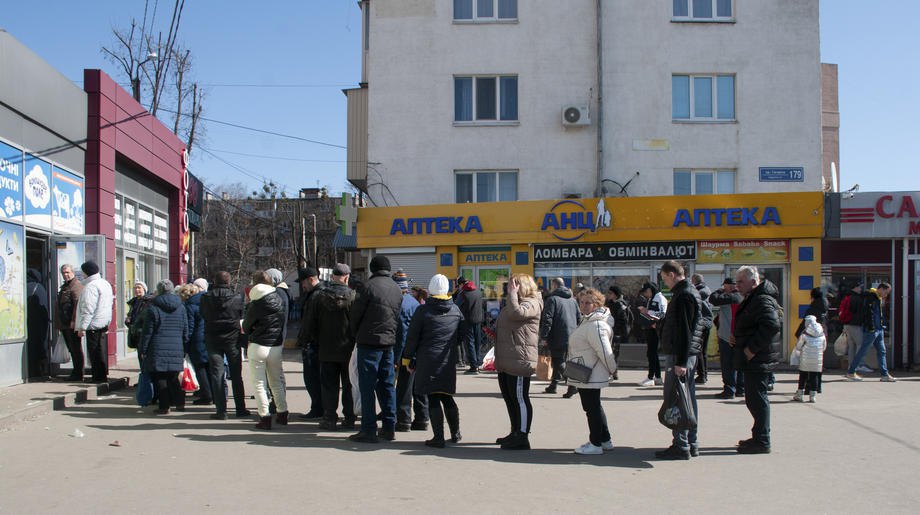
Photo: EPA / UPG
Viscous.
Yes, viscous, you are right. People were afraid at first, but now they are used to it. Many stores have opened and are operating. I'm not saying that there is an assortment that was before the war, but there is some.
It was easier to agree with the bakery. At first, I gave flour, they delivered it under the bombings - and they [Russian army] shot at the flour trucks. And petrol had to be provided because companies were not ready to work in such conditions. Today there are bakeries working, we have found other bakeries, so we have enough bread. Another thing is that we are now engaged in a function that is unusual for us - we distribute flour, soap, powders, detergents, medicines, we provide supplies to local defence forces. But this is ok.
You turned for support to the mayors of twin cities of Kharkiv - Chicago, Boston, Genoa.
New York.
Yes. This is not our first interview with the mayors of Ukrainian cities that have suffered the most from the war. And they talk about the strong horizontal support of the mayors for each other, but with the state, it could have been better. What do you think about that?
I have no problem with the President's Office at all. We receive a lot of humanitarian aid from the Office. And there was never a time when I made a request, and I was denied. It is clear that there are many regions and many problems. But we have a well-established system, and we get everything we need through the Office of the President, the Cabinet of Ministers. There are no questions at all.
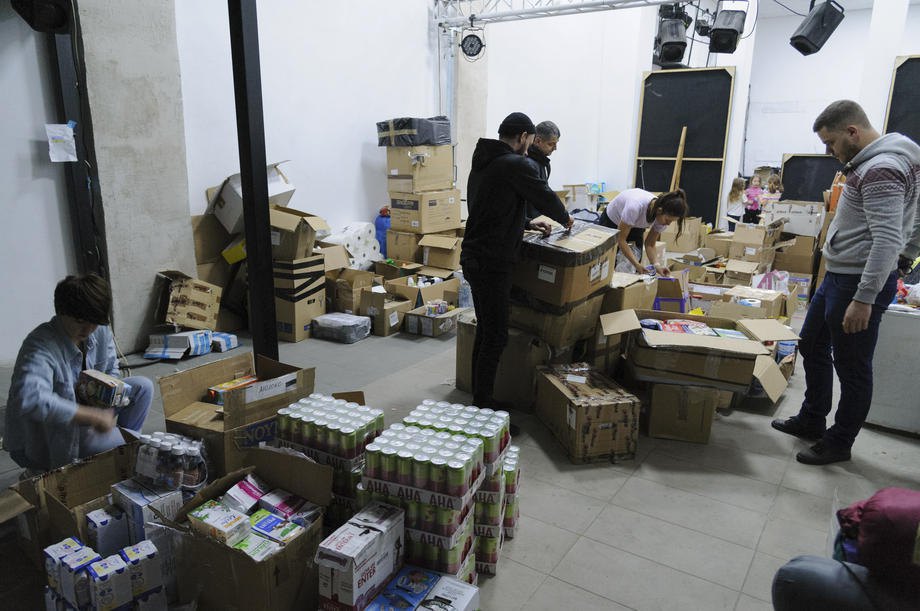
Photo: EPA / UPG
You said you would not name the number of civilian casualties. This can be understood. And how many people left and how many stay in the city, approximately?
It's hard to count, because, as I said, men come back, sometimes whole families come back. Kharkiv residents love their city, and for them, it is the most comfortable. They have been to western Ukraine and are now returning home.
Do you have any approximate numbers of those who left?
I cannot make an estimate, but more than half stays in Kharkiv.
Are there any problems with leaving Kharkiv or delivering humanitarian aid? The mayor of Chernihiv, for example, said that the road to Kyiv from the city was mined, the bridge was blown up, and people were leaving using forest trails. Do you have something like that?
Somewhere there is, somewhere there is not. We are doing something.
There are no attempts to "evacuate" people to Russia, as in Mariupol?
From the Kharkiv region - there are, of course, especially in those areas that are closer to Russia. Unfortunately, there are such cases.
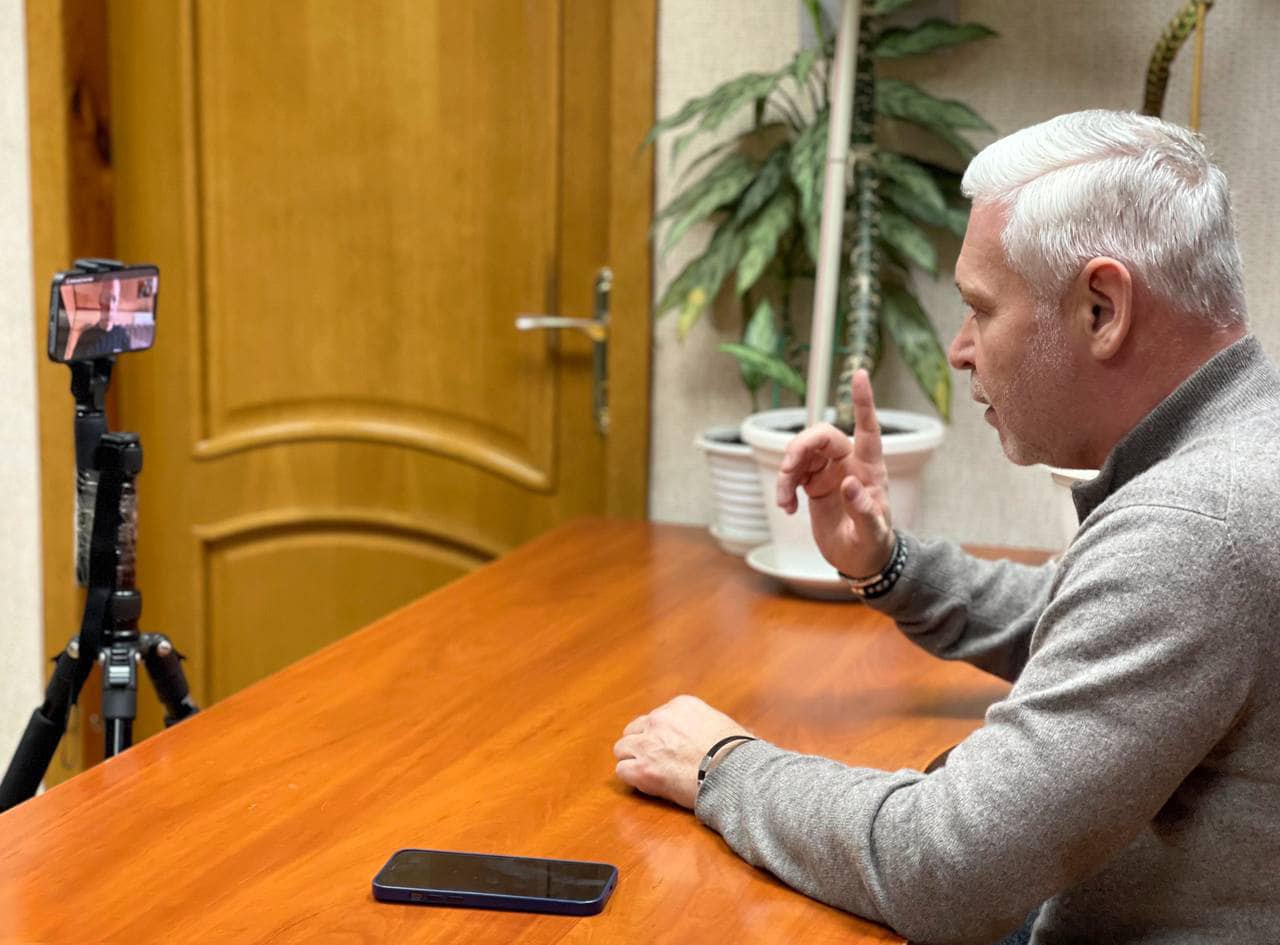
"The pool of architects is already working (planning to rebuild the city)"
There are a number of questions we ask all mayors. For example, President Zelensky said that a plan to rebuild cities after the war was now being actively developed. Some of the mayors say that it is too early because the scale is still unclear - the shelling continues. Some are actively involved. What is your opinion: is it worth writing down any ideas, restoration projects or is it more logical to wait?
I've already started this process. We have gathered a pool of architects, including from America and other countries. They are already working. I turned to our best architects because we already understand that much needs to be restored. We understand what types of housing we need which districts. I don't want us to have "boxes". This will be a completely new philosophy of construction, including energy-saving, rooftop boilers, wells that should be in every district, and deep underground parking lots, which will serve as bomb shelters. This relates to the residential areas.
We have to build a lot of schools and kindergartens, they will also be different.
As for the administrative buildings, especially the central part of the city, I asked our architects to look 10 steps forward when creating a cityscape. It should be new, modern, but at the same time keep the highlight of the city of Kharkiv, Beketovsky highlight.
Explain to non-Kharkiv residents.
Beketov is an architect who is considered to be the founder of our architectural school. Many mansions were built according to his designs. They are called "Beketov's" mansions.
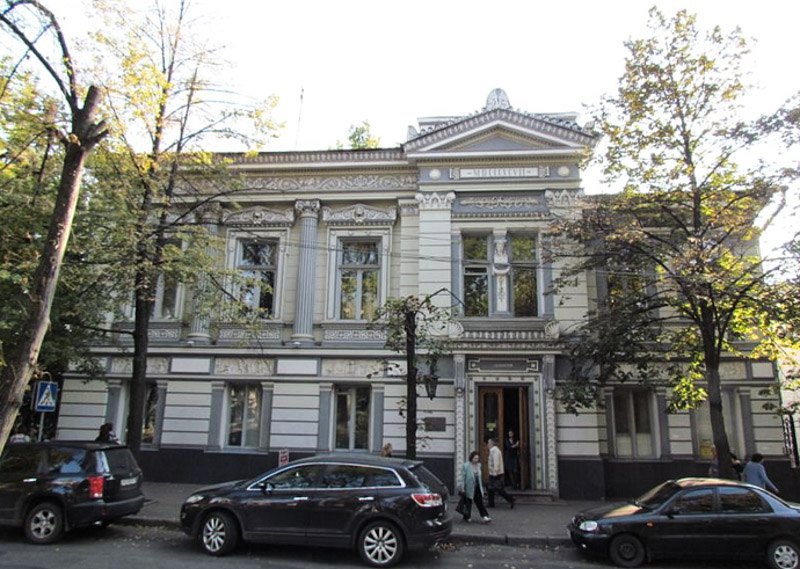
Beketov's mansion in Kharkiv. Photo: igotoworld.com
So, I asked them to keep the Beketov style, despite completely new approaches to architecture.
Let's hope that there will be enough resources and Kharkiv will survive.
It all depends on our military. They fight heroically, great people. Heroes. I am insanely grateful to them, like all Kharkiv residents, for the fact that today they stand by their positions, defend the art of war. Earlier in Kharkiv there was no special attitude to the army. And today everyone acknowledged that we have a powerful Ukrainian army that can withstand the second army of the world. Successfully resist. We sincerely thank them from all Kharkiv residents. And as for us - we will withstand.
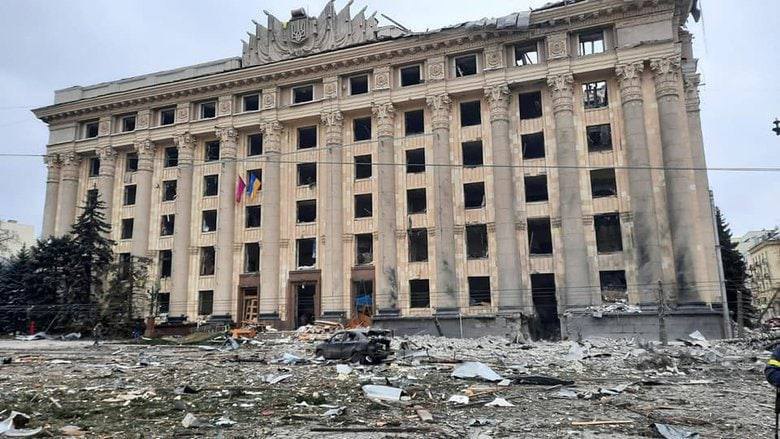
Photo: HODA









